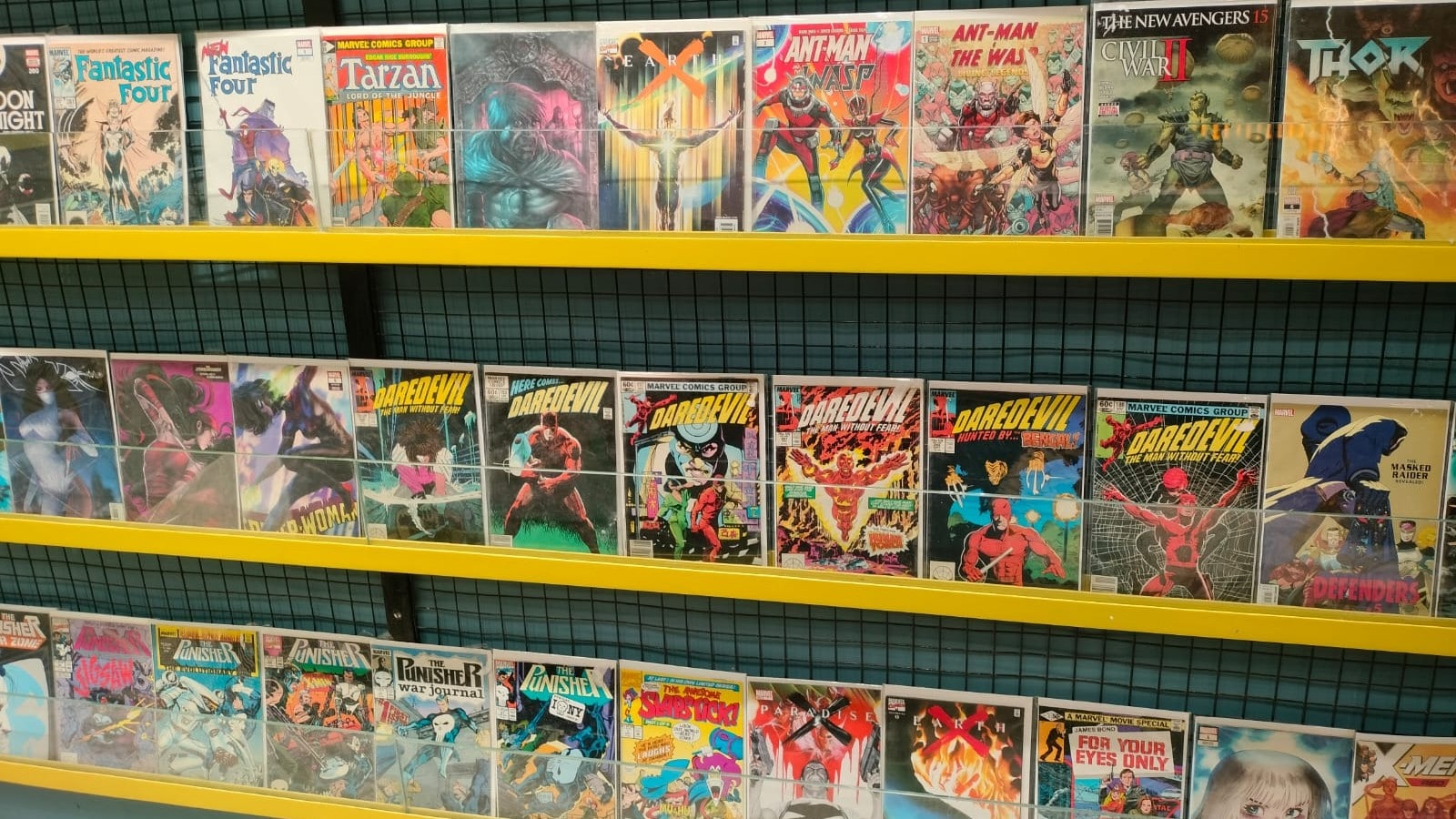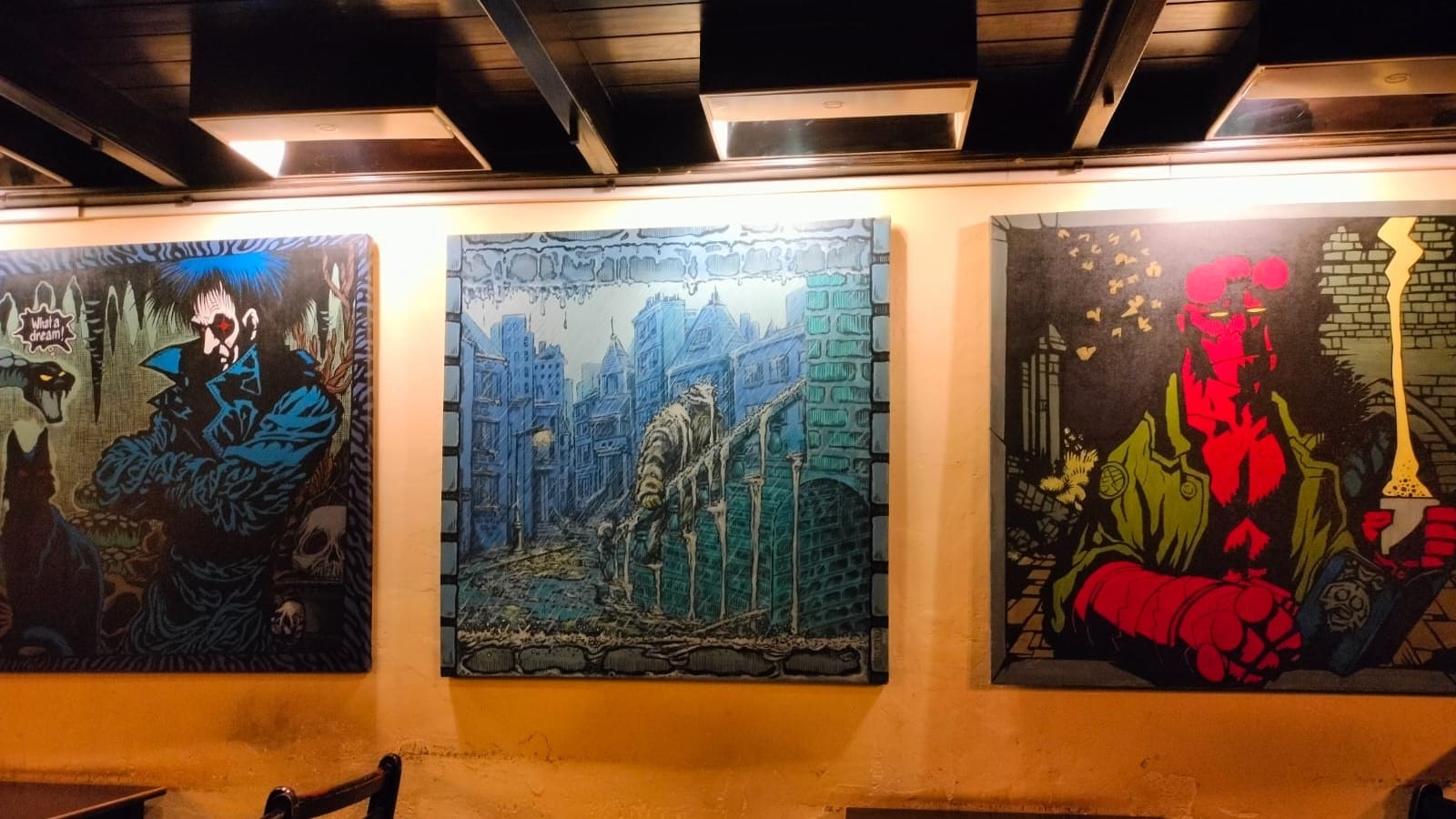
When Marvel surprised the world by announcing Robert Downey Jr., loved by all as Iron Man, as super villain Doctor Doom for the next Avengers movie, director Joe Russo justified it as a proof of the unimaginable possibilities of the multiverse.
But, in the comic book universe, a possibility that is still unimaginable is how to make American superhero intellectual properties more affordable to the millions of fans in India.
Hollywood superhero blockbusters, especially those from the Marvel Cinematic Universe, have sent the popularity of comic books to soaring heights. They have probably never been more recognisable or more profitable throughout their entire 85-year history, dating back to the official comic book debut of the character Superman in Action Comics #1 in 1938.
Despite this popularity, comic books, the medium that invented them, seem to have seen a rise in costs in India over the decades, with the average cost of a comic book published by either DC (the publishers of Batman and Superman comics) or Marvel (the publishers of X-Men and Spider-Man comics) being in the range of Rs 500 to Rs 9,000, making them a comparatively hefty investment that adults would have the financial means to acquire.
This contrasts with the idealism, escapism and power fantasy that is traditionally associated with these stories that would primarily appeal to children and young teens.
Between 1998 and 2008, superhero comic books sold at a much more affordable rate of Rs 10 or Rs 20 for a single issue to Rs 100 for a thicker collected edition that collected the single issues into one volume. In comparison to the current situation, they were sold in bookstores, stationery shops and newsstands alike.
This was made possible by Gotham Entertainment, a company started by entrepreneurs Sharad Devarajan and Gotham Chopra. They struck a distribution deal with American publishers like DC, Marvel and Dark Horse and MAD Magazine to reprint their comics in India. They would come in smaller sizes and on cheaper paper, and sold a low cover price, so they were accessible to many in India.
They also created the comic book character and the miniseries of the same name Spider-Man: India, in collaboration with Marvel, who also showed up in the animated movie Spider-Man: Across The Spiderverse, voiced by actor Karan Soni of Deadpool fame.
This partnership seemed to have ended in 2008, when Gotham Entertainment Group turned into Virgin Comics due to a partnership with Richard Branson's Virgin and started publishing its own IPs, such as Devi and 18 Days.
They partnered with writers like Stan Lee, who created Spider-Man, filmmaker Jon Woo and renowned creators like Grant Morrison who is responsible for critically acclaimed works like All-Star Superman—cited as the main inspiration for the upcoming Superman movie in 2025—and Garth Ennis who is best known for writing the comic book series that inspired Amazon Prime's The Boys, which was one of its most-watched shows in 2024.

Shelves with single issue comic books at 'The Comic Book Store' In Mumbai (Photographer: Prajwal Jayaraj/NDTV Profit)
A substantial amount of the costs of the comic books have been attributed to import and licencing costs due to these comic books being printed in the US and being shipped over to India to be sold either at bookshops or e-commerce markets like Amazon.
Distribution plays a large part in how pricing functions, even in the US where these comic books originated, where they were initially sold with low cover prices in newsstands, convenience stores and bookstores through a series of independent distributors.
This system changed in the 1990s when specialty retail comic bookstores gained popularity, allowing publishers to engage in direct distribution, through one single distributor named Diamond Comics Distributors Inc., which still holds a virtual monopoly over comic book distribution in the US.
This increased the cost of comic books as publishers had more incentive to charge premium prices on their comics due to the increase in popularity that their product enjoyed. This also meant that comic book retailers in India have to pay substantial amount to import them for sale in domestic markets, which carries over to consumers.
"The cost comes up to around 70–80% (of the retail price) and we function on very low margins," Hamza Sayed, owner of The Comic Book Store in Mumbai, said.
Sayed's store is one of the first and only specialty comic bookstore in India, and has been catering to the needs of comic book aficionados since 2022. His clientele ranges from superhero fans who walk in to get their fix of popular titles like Batman and Avengers to specialty collectors (reportedly including anonymous celebrities).
Sayed speculates that Gotham's low staying power was because of them being "ahead of their time" and not having a concrete distribution system in place.
"Their distribution and supply was before the pre-ecommerce boom, they came at a time when such properties weren't as popular as they are now," Sayed suggested.

The Interior Of 'Leaping Windows Cafe' In Mumbai (Photographer: Prajwal Jayaraj/NDTV Profit)
Sayed is one of the few retailers who have an exclusive licence for import of foreign comic books into India and states that companies like Warner Brothers and Disney, which own DC and Marvel respectively, don't have subsidiaries outside the US that undertake printing and distribution. And, he has not heard of companies acquiring their reprint licences anymore.
Indian comic book fans have expressed their dismay with the rising prices, with many stating that high cost makes accessibility and affordability an issue for many.
"I have always felt that the fact that we get everything imported makes the price ridiculously high...and prices remain prohibitive with no movement towards local printing rights," said Bidisha Basu, one of the co-founders on Mumbai's Leaping Windows Cafe. "This is a general statement, though, for all comics and Gotham only gave relief to a very specific reader subset."
The cafe has a collection of vintage comic books, ranging from independent creator-owned comics like Hellboy, to alternative comics like Preacher, Hellblazer and Sandman. It allowed patrons to walk in and read them over a cup of coffee at their own leisure.
Despite Gotham's exit from the printing and distribution space, the demand and the profit potential of domestic printing and distribution still exists and many, including business owners like Sayed and Basu, most likely, benefiting from such a system.
Essential Business Intelligence, Continuous LIVE TV, Sharp Market Insights, Practical Personal Finance Advice and Latest Stories — On NDTV Profit.























